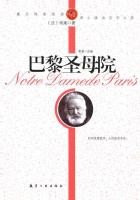We were near neighbors, as the pleonasm has it, both when I lived on Berkeley Street and after I had built my own house on Concord Avenue;and I suppose he found my youthful informality convenient. He always asked me to dinner when his old friend Greene came to visit him, and then we had an Italian time together, with more or less repetition in our talk, of what we had said before of Italian poetry and Italian character.
One day there came a note from him saying, in effect, "Salvini is coming out to dine with me tomorrow night, and I want you to come too. There will be no one else but Greene and myself, and we will have an Italian dinner."
Unhappily I had accepted a dinner in Boston for that night, and this invitation put me in great misery. I must keep my engagement, but how could I bear to miss meeting Salvini at Longfellow's table on terms like these? We consulted at home together and questioned whether I might not rush into Boston, seek out my host there, possess him of the facts, and frankly throw myself on his mercy. Then a sudden thought struck us:
Go to Longfellow, and submit the case to him! I went, and he entered with delicate sympathy into the affair. But he decided that, taking the large view of it, I must keep my engagement, lest I should run even a remote risk of wounding my friend's susceptibilities. I obeyed, and I had a very good time, but I still feel that I missed the best time of my life, and that I ought to be rewarded for my sacrifice, somewhere.
Longfellow so rarely spoke of himself in any way that one heard from him few of those experiences of the distinguished man in contact with the undistinguished, which he must have had so abundantly. But he told, while it was fresh in his mind, an incident that happened to him one day in Boston at a tobacconist's, where a certain brand of cigars was recommended to him as the kind Longfellow smoked. "Ah, then I must have some of them; and I will ask you to send me a box," said Longfellow, and he wrote down his name and address. The cigar-dealer read it with the smile of a worsted champion, and said, "Well, I guess you had me, that time." At a funeral a mourner wished to open conversation, and by way of suggesting a theme of common interest, began, "You've buried, I believe?"
Sometimes people were shown by the poet through Craigie House who had no knowledge of it except that it had been Washington's headquarters. Of course Longfellow was known by sight to every one in Cambridge. He was daily in the streets, while his health endured, and as he kept no carriage, he was often to be met in the horse-cars, which were such common ground in Cambridge that they were often like small invited parties of friends when they left Harvard Square, so that you expected the gentlemen to jump up and ask the ladies whether they would have chicken salad. In civic and political matters he mingled so far as to vote regularly, and he voted with his party, trusting it for a general regard to the public welfare.
I fancy he was somewhat shy of his fellow-men, as the scholar seems always to be, from the sequestered habit of his life; but I think Longfellow was incapable of marking any difference between himself and them. I never heard from him anything that was 'de haut en bas', when he spoke of people, and in Cambridge, where there was a good deal of contempt for the less lettered, and we liked to smile though we did not like to sneer, and to analyze if we did not censure, Longfellow and Longfellow's house were free of all that. Whatever his feeling may have been towards other sorts and conditions of men, his effect was of an entire democracy. He was always the most unassuming person in any company, and at some large public dinners where I saw him I found him patient of the greater attention that more public men paid themselves and one another. He was not a speaker, and I never saw him on his feet at dinner, except once, when he read a poem for Whittier, who was absent.
He disliked after-dinner speaking, and made conditions for his own exemption from it.















